|
A few years ago, I was backpacking through the desert of northeastern New Mexico. On one particular day, we were going to climb the tallest mountain of our trek, Baldy Mountain, at an elevation of 12,441 feet. As we got higher, the climb became more difficult with thinning air and more challenging terrain. As we neared the summit, I ended up in front of the crew. Just as we reached the summit, our crew leader, Jordan, literally gave me the final push to the top. At that moment, we were on top of the world and gleaming with joy! While on the mountaintop, we could see for miles. As we reveled, I paused and said a quick prayer of thanksgiving. One couldn't help but be amazed at God's great creation. As we rested, having a quick snack and some water, we saw some storm clouds starting to roll in and were forced to descend quicker than anticipated. Eventually, we would finish our 110 mile trek—with Baldy Mountain being one of the greatest highlights.
Whenever I hear the story of the Transfiguration, my mind immediately goes to this time in the mountains. Because of this experience, I feel as though I have walked with Peter, John, and James. At the moment I reached summit, I caught a glimpse of the glory of God. I saw a small part of the transfiguring power of Jesus. I went from a hiker to a pilgrim in a matter of seconds. My trek now had a greater significance. It was no longer just a physical challenge, but one that would cause me to go on a religious quest in God's great creation. This is what I see in last Sunday's Gospel, which is a reminder of the splendor of Jesus. Usually by this point in Lent, I am more concerned about avoiding the things I have given up and less on Jesus. The Transfiguration is a reminder of why we enter the Lenten season: to see the face of Jesus. He helps us transfigure ourselves into being more loving, more merciful, and more perfect humans. If we look at the beginning of Chapter 9 of Luke, Jesus gives his mission to the Apostles. He tells them to go out and proclaim the Good News. It is after the Transfiguration that he reveals more of his glory. We, too, have the same experience. These experiences come in a number of different ways. They are often brief personal moments that can happen anywhere. Personally, I often find them in interactions with individuals. It can be serving the poor, being with a friend during a difficult time, or smiling at a stranger in the grocery store. From the moment of our baptism, we are sent out into the world as apostles and then along the way we consistently experience his glory. This encounter can happen anywhere and at anytime. I also appreciate Peter's role in this Gospel. Rather than being amazed at the splendor of Christ and the conversation between him, Elijah, and Moses, Peter suggests they pitch tents for the three. Doing so would completely defeat the purpose of the meeting. His transfiguration is an affirmation of his identity as the Messiah and is meant to show how Jesus is the fulfillment of the Old Testament. I often find that I say something at the wrong place or time. That is exactly what Peter does here. He means well, but doesn't see what is in front of him: the glory that Jesus has revealed. In his humanity, Peter often does this, yet Jesus still loves him. Especially during the Year of Mercy, we need to be reminded that we, too, can be like Peter and that is okay. We often don't see the splendor in front of our eyes. But we know that we are loved by God, who is the Infinite Love. When we invite God to enter our hearts, we can see the spender of God. Like the patron of the Catholic Apostolate Center, St. Vincent Pallotti, said "Seek God and you find God. Seek God in all things and you will find God in all things. Seek God in always and you will always find God." As we go on this week, we should be looking in our own lives to see the transfiguring power of Christ. It may not be a major event, like last Sunday's Gospel, but in the small things. If we keep our hearts open this Lent we will find God anywhere. For more resources to accompany you on your Lenten journey, click here.
0 Comments
"On this holy night, while we contemplate the Infant Jesus just born and placed in the manger, we are invited to reflect. How do we welcome the tenderness of God? Do I allow myself to be taken up by God, to be embraced by him, or do I prevent him from drawing close?" - Pope Francis (Christmas Homily, 2014) The past year has seen many moments that called out for the "tenderness of God." Challenging moments of war, suffering, natural disaster, and human-caused neglect - seemingly harsh, rather than tender. Some might use the harshness of the world as an excuse to move away from God or render God irrelevant. Yet, there is still a seeking in the human heart given by God who desires to embrace us and draw us close. When we look at the scene of the Nativity, do we see the tenderness of God in the midst of the harsh reality that Mary and Joseph were not shown tenderness in their need, but instead were rejected? The Son of God came into the world in poverty. At the end of his earthly life, he was rejected once again. The Father, though, continued to show mercy, love, and tenderness by raising him up, opening the way to salvation, and leaving us a share in Christ's mission of love and mercy until he comes again. During this Jubilee of Mercy and beyond, may we go about doing Christ's mission well through living tenderness, reviving faith, rekindling charity - living the corporal and spiritual works of mercy. These works of mercy are practical ways for us to welcome and share the "tenderness of God." On behalf of the board, staff, collaborators, and advisors of the Catholic Apostolate Center, may you have a Blessed Christmas and a good New Year! You will be remembered by me at Masses during the Christmas season! May the charity of Christ urge us on!
Until recently, I had this perception that to serve God in a day job, someone had to work directly in religious life or work as a missionary. I thoroughly enjoy my day job in communications, but couldn’t help wondering if what I was doing ultimately served God. I searched the Internet for ways to see God in the day-to-day struggles of work-life balance. Through my search and prayer, I realized that working in an ethical environment that fit with my morals and values was the first step to seeing how my work served God. After reflection, I also saw how the words I used and the promotional or informative materials I designed inspired and educated others. God gives us all unique talents to grow and develop, as mentioned in The Parable of the Talents in Matthew. I believe my communications role allows me to strengthen my gifts in thinking creatively and working quickly and efficiently, while helping me to be a positive voice in my work environment. Here are some inspirational points I keep in mind while working in a nine-to-five career. 1. “Work becomes worship when you dedicate it to God and perform it with an awareness of his presence.” –Rick Warren, The Purpose Driven Life A secular view removes God from our work. However, God wants to be a part of our work. He calls us to use our unique talents for others. This helps to reveal to us why we are important and what we are called to do. We can each bring honor and glory to God in our own way by using these unique talents in whatever work we do. Some ideas:
2. “Slaves, be obedient…as to Christ, not only when being watched, as currying favor, but as slaves of Christ, doing the will of God from the heart, willingly serving the Lord and not human beings, knowing that each will be requited from the Lord for whatever good he does, whether he is slave or free.” – Ephesians 6:5-8 Regardless of the type of work we do, God is our ultimate employer. Following God’s plan for our work is what gives it legitimacy. Just as Adam and Eve were given the task of taking care of God’s creation before they sinned, so too were we created to do God’s work of maintaining and providing for His creation. It’s important to remain ethical in our daily tasks. When we are tempted to gossip, be grumpy, or give into peer pressure, we must remind ourselves that God calls us to act above those enticements. 3. “Those to whom God gives riches and property, and grants power to partake of them, so that they receive their lot and find joy in the fruits of their toil: This is a gift from God. For they will hardly dwell on the shortness of life, because God lets them busy themselves with the joy of their heart.” – Ecclesiastes 5:18-19 Serving God in our work completely depends on our attitude. We are called to be joyful in our work. This is made easier when we remember that we are ultimately serving others through our work. If there’s a menial or stressful task ahead, think of the people who benefit from your service. 4. “I am the vine, you are the branches. Whoever remains in me and I in him will bear much fruit, because without me you can do nothing.” – John 15:5 God wants to be invited into every area of our lives, and much of our lives are spent doing work. Though we may attain monetary success or be productive in the workplace, if our work does not have God as its foundation, it is stripped of its transcendent meaning. Including God in our daily lives is a sign of humility. Try asking for God’s help throughout the day or during an important meeting or project. 5. “In every way I have shown you that by hard work of that sort we must help the weak, and keep in mind the words of the Lord Jesus who himself said, ‘It is more blessed to give than to receive.’” – Acts 20:35 While we work to earn a living and provide for our families, we are also called to be generous to our neighbors in need. After all, it is because of God’s blessings that we have the ability to take care of ourselves. We are, again, called to take care of all God’s creation. Some ways we can take care of God’s creation include: • Reflecting on what your God-given talents are, and seeking ways to put your talents to work by serving your community. • Seeking to respect life in all forms – the environment, human life from conception to natural death, and other living animals. • Finding ways to live simply and not be wasteful; recycle. • Offering to help others in your office – if a coworker is on a tight deadline, ask them how you can assist in your role. • Saving a portion of your monthly budget for charity, including church tithing. You never know when a service opportunity presents itself – and now, you’ll have a budget you can pull from! 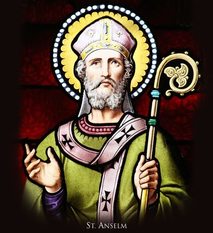 “Faith Seeking Understanding” is the motto of St. Anselm of Canterbury, whose feast we celebrate today, is a reminder to all Christians to seek God not only with our hearts but with our minds as well. St. Anselm, a Benedictine monk who lived during the 11th century, was known throughout Europe for his mind. He was a great scholar and strategist, having often put his wits against those of the English monarchy to try and preserve his own life and the life of the Church in England. However, his exercise of intellect during his life is not the “understanding” that his motto would prompt us to seek, nor that which lead him to be canonized a Saint. Rather it is the knowledge which Pope Francis spoke of in his general audience on May 21, 2014 “When we speak of knowledge, we immediately think of man’s capacity to learn more and more about the reality that surrounds him and to discover the laws that regulate nature and the universe. The knowledge that comes from the Holy Spirit, however, is not limited to human knowledge; it is a special gift, which leads us to grasp, through creation, the greatness and love of God…” This kind of knowledge, the knowledge of God, is far more precious than any other. How then do we obtain this most precious knowledge? St. Anselm would probably quote the words the founder of his order, St. Benedict, by saying “ora et labora” (pray and work). Indeed prayer and work, focused on God, will help lead someone to better understand God. Pope Francis, in that same audience on May 21st, gives us a possible focus for that prayer and work: creation. The Holy Father noted that although God gave the gift of His creation to man, that does not make mankind the “masters of creation.” The Holy Father continued by saying that “creation is not some possession that we can lord over for our own pleasure; nor, even less, is it the property of only some people, the few: creation is a gift…” All around us, especially as new life comes forth during this spring season, we can see God’s creation in its majesty. We must work then to care for it but also reflect and pray upon it. We must always seek to understand God so as to better conform our own lives to His will. Faith is a gift, and having faith is not the end of a journey but the start of a new one. St. Anselm teaches us that we must use our faith to seek understanding of the world around us and of the God who created us! Patrick Burke is a staff member at The Catholic University of America in Washington, D.C.
While studying the New Testament during my sophomore year of Catholic high school, our teacher assigned us a project to make our own Stations of the Cross prayer book. We were to create a modern version of the Stations of the Cross by choosing pictures that reflect each station in contemporary times. I remember wanting to make the Stations of the Cross relevant to me as a high school student and looking for pictures of the Stations as they appear today.
I have always enjoyed history and for this project I found that the Via Dolorosa (Latin for “Way of Grief”) is the street found in the Old City of Jerusalem considered to be the route Jesus walked on the way to his crucifixion. I selected current images of where each station is believed to have taken place. The route is marked by nine of the fourteen Stations of the Cross with the last five Stations found inside the Church of the Holy Sepulcher. Reflecting on the modern photo of each station helped me to create a sort of pilgrimage, creating a visual image of the path Jesus walked to his death. Just as the Via Dolorosa gives us a glimpse of the visual path Jesus walked, we can relate to events and people of the past by associating with the current burdens of our world in order to promote deeper learning and engagement. Just as Jesus was wrongly accused and tortured, so are many around the world through persecution, violence, ignorance and injustice. When Jesus walked with the heavy cross on his shoulders, he carried the heavy burdening sins of others. We, too, can often find ourselves burdened with loads that we created for ourselves and others. We may fall under the heavy loads of work, family, relationships, financial issues or worry. We must learn to graciously accept assistance and thank those who help us like Jesus when he let Simon help him carry the burden of the cross. Likewise, we must remember to help those less fortunate or reaching out to others in unexpected ways. When our egos, dignity and faith have been bruised, we experience the same agony and hurt as Jesus when he fell to the ground a second time. We need to ask God to help us practice the gift of humility. How can we put these reflections into action this Lenten season? Taking just five minutes to pause and reflect on all that we are thankful for can help us understand how we are truly blessed. When I reflect on the Stations of the Cross, I ask God to help me love as I have been loved, to forgive as I have been forgiven and to be in continual awe of God’s marvelous works. During this Lenten journey, I think it’s helpful to find the things in our faith that remind us of God’s love and help us reflect. My pocket Stations of the Cross helps me to do just that. Dana Edwards is a recent graduate of the University of Florida. She currently resides in Tallahassee, Florida where she works as a Digital Strategist, and volunteers as a lector and with communication outreach at her local parish, Good Shepherd Catholic Church. “God is offering us grace, let us be man enough to accept it!”
- Monsignor Vito Buonanno I heard this a couple weeks ago at a Knights of Columbus meeting and it has stuck with me ever since. Not only are these words empowering and driving us to seek God, but they also perfectly describe our Lenten journey. We are imperfect, we are lacking, we are human, but God still loves us. He is offering us the grace to seek Him, to journey toward him, to be with Him, let us accept this grace, take His hand, and walk with God! This is easier said than done. Last week we celebrated Ash Wednesday and many of us made Lenten promises to abstain from sweets, help out a neighbor, or pray a little bit more. And at the beginning of the Lenten season, many of us are most likely already struggling with our Lenten promise. But we cannot focus on those failures, rather we must focus on how to stand back up and continue walking toward Christ. We need to focus on converting ourselves to Christ. In his Ash Wednesday homily in 2014, Pope Francis said, “Once again Lent comes to make its prophetic appeal, to remind us that it is possible to create something new within ourselves and around us, simply because God is faithful, always faithful, for he cannot deny himself, he continues to be rich in goodness and mercy, and he is always ready to forgive and start afresh.” We have heard similar themes before in Baptism. In Baptism, we talk about beginning anew and starting afresh as we enter into the water, die with Christ, and are reborn in him. Our Lenten journey is a reminder of our Baptismal call to live out the Gospel and in doing so we convert others and ourselves to Christ. The Lenten journey is different for each and every one of us for we all convert ourselves to Christ in different ways. And yet at the center of every conversion has to be prayer. It is only through prayer that we can come to understand all that God is asking of us. It is only through a dialogue with Him that we can form ourselves in His image. It is only through prayer that we are able to examine ourselves, reconcile with Christ, and move forward walking with hope toward the light of salvation. Prayer is not always easy. Oftentimes I sit down to pray and am bombarded with thoughts about everything that I need to do that day, the things in my life that are worrying me, and the distracting sounds around me. Some people would say to find God in those distractions, to let Him speak to you through them, but that does not always work for me. When I am struggling to pray I turn to formed prayer, to writings of Archbishop Fulton Sheen, Pope Francis, or St. Thomas Aquinas. When I am struggling to pray I turn to Our Blessed Mother and pray the rosary. These things ground me in my faith and when I am finished I am ready to listen. This Lenten season lets us open our hearts to Christ so that He may guide us on this journey to Him. Jesus wants to love us, we just have to say yes! Nicholas Shields is a Young Professional in Washington, D.C. To learn more about Lenten prayer please check out our Lenten Resources! “The fire of the Holy Spirit was sent down upon the Apostles at Pentecost in answer to their fervent prayer; ardent prayer in the Spirit must always be the soul of new evangelization and the heart of our lives as Christians.”
– Pope Francis (General Audience, May 22, 2013) Prayer. Sometimes we make it so difficult. I am not sure why. Maybe we think it needs to be very formal or formulaic? I know that I thought that for a very long time. There is certainly a place for formal prayer, be it communal, such as during the Mass or the Liturgy of the Hours or even private, such when use a formal written prayer. In fact, we Catholics have a love affair with our prayer cards, books, and other sacramentals, including candles, statutes, and icons. This is an excellent thing because “they prepare us to receive grace and dispose us to cooperate with it” (Catechism of the Catholic Church, n. 1670). They are, though, simply means, not ends in themselves. Means to a conversation with God or maybe more precisely, a dialogue. We might not consider it a dialogue. Fervent prayer, ardent prayer, in the way that Pope Francis is calling for is an on-going dialogue with God throughout our day, an awareness of the action and activity of the Holy Spirit permeating our lives. It is a seeking for God and finding God in all things, in every moment and in every place. St. Teresa of Avila encourages us to be seekers of God and St. Ignatius of Loyola calls us to “find God in all things.” St. Vincent Pallotti puts the two aspects together, as was often his way, and challenges us to: “Seek God and you will find God. Seek God in all things and you will find God in all things. Seek God always and you will always find God.” We certainly need to take time to be in communal prayer like those in the Cenacle or Upper Room at Pentecost. We also need to be in private prayer, setting aside time to go to our “inner room, close the door, and pray to [our] Father in secret” (Matthew 6:6). The Holy Spirit, though, is active and alive everywhere, if we but open our eyes to see and our ears to hear. Fr. Frank Donio, S.A.C., is the Director of the Catholic Apostolate Center This blog post was first published on October 26th on the St. Joseph’s College of Maine Theology Faculty Blog. Click here to learn more about our cooperative alliance with St. Joseph’s College Online This past weekend I was fortunate enough to attend a conference on Catholic leadership. I attended a session that really made me think completely differently about vocations. I’ve always thought of the term “discernment” as only really applying to those thinking of entering the priesthood or religious life. While I’ve certainly thought about paths other than marriage, I always felt like I was not in any type of discernment process. But I have come to realize that we all have to discern, trying to figure out our calling.
I've always understood vocation as God calling us to a certain way of life, whether that be priesthood, religious life, married life, or even the single life. Any vocation has its challenges and rewards, and for me, trying to figure out exactly where God is calling me has been a challenging experience, yet one that has certainly deepened my own faith. One frustration I've always had is that I never had my "moment," that point in your life where you can see clearly what God's plan for you is. I have heard many people describe their own moments of realization and I've always longed for that clarity and joy which they seem to possess, knowing that they are fulfilling God's call in their life. Then one of the sessions I attended this past weekend changed my feelings on finding that "moment." The presenter talked about discernment not only as a process but also as a choice. We do have a choice in the direction our lives take, as God, in His infinite wisdom, gave us the gift of free will. We try to spend our lives living in a way that is pleasing to Him, but ultimately we do have choices. This presenter talked about examining our lives, finding where our strengths lie, and following a path which utilizes those talents. This is easier said than done, but it also made me think about my own discernment process. I had been waiting around for some great revelation in which God tells me exactly where He wants me and I have this realization that I know for certain where I need to be. The reality is, we rarely know anything for certain; we can only strive to do God's will here on earth. I recognize now that my vocation is something I need to actively pursue, rather than passively wait for. I challenge you to do the same. What are your strengths, what are you good at? Where can you serve God the most effectively in your own life? Don't wait for answers. Seek them out! Rebecca Ruesch is the Blog Editor for the Catholic Apostolate Center The call to holiness and the mission presented to the Church from Jesus Christ is certainly a challenging one. The fact that God created us with the ability to freely choose not only between right and wrong but between varied truths allows the members of Christ’s body, the Church, to live out the freedom given by God by our birth and baptism. The Catechism defines freedom as “the power, rooted in reason and will, to act or not to act, to do this or that, and so to perform deliberate actions on one's own responsibility ... Human freedom is a force for growth and maturity in truth and goodness; it attains its perfection when directed toward God, our beatitude” (1731). The ‘mission,’ so to speak, of Catholics in this day and age is to live the Gospel message and to promote a New Evangelization.
This does not mean that everyone is called to any particular vocation. However, everyone is called to a vocation. It is up to the individual, because of their freedom, to choose and discern where they are being called by God and for what purpose. Thomas Merton, in his book New Seeds of Contemplation, eloquently puts it: Our vocation is not simply to be, but to work together with God in the creation of our own life, our own identity, our own destiny. We are free beings and sons of God. This means to say that we should not passively exist, but actively participate in His creative freedom, in our own lives, and in the lives of others, by choosing the truth. To put it better, we are even called to share with God the work of creating the truth of our identity. Concrete personal reflection has never come easy for me, and there is a reason that people tend to hide their emotions. Reflecting on the meaning of vocation and what God is calling me to do conjures up memories of high school retreats of discovering where God is found in daily life. While structured experiences of faith exploration and formation are important in shaping the broad spectrum of faith, I have learned that is not all of what my faith encompasses. At the very first meeting with my spiritual director, he asked, “Who is Alex?” I began to spew answers such as student, friend, brother, and the like. What I wanted to avoid was the internal reflection on the self because I didn’t want to have to address the underlying feelings regarding vocation and personal identity. If we are indeed called to shape our own identity, then we very often have a choice. This could be a choice between choosing the truth over a falsehood or even between particular vocations. In discernment, it is my task to look forward, to look to the future. If I dwell on the things of the past, I will never adequately be able to say that I have done what God is calling me to do, whatever it may be. It is the Christian’s responsibility, my responsibility, to discern this vocation, whatever it may be, under the guidance of the Holy Spirit. If we must seek the Creator “spontaneously,” as the Vatican II document Gaudium et Spes puts it, on their own accord and out of impulse, then it becomes clear that the mission of the baptized Christian is to seek God always and in all things. The Italian priest Saint Vincent Pallotti, patron of the Catholic Apostolate Center, wrote, “Seek God and you will find God. Seek God in all things, and you will find God in all things. Seek God always and you will always find God.” I have often found consolation in this prayer of Saint Vincent. It serves as a reminder to attune my heart and mind to God, in all things and at all times. Out of this freedom of choice and seeking comes a responsibility to act out of instinct and to lead others closer to Jesus Christ by first seeking the very God who created us. Alex R. Boucher is the Program & Operations Coordinator for the Catholic Apostolate Center. Follow Alex on Twitter at @AlexBoucher. |
Details
Archives
July 2024
Categories
All
|
About |
Media |
© COPYRIGHT 2024 | ALL RIGHTS RESERVED


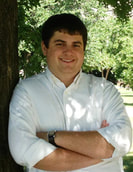
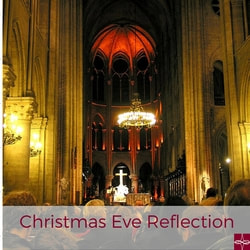
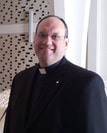


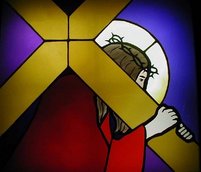
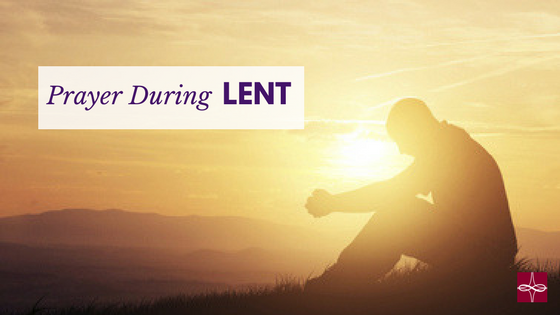


 RSS Feed
RSS Feed